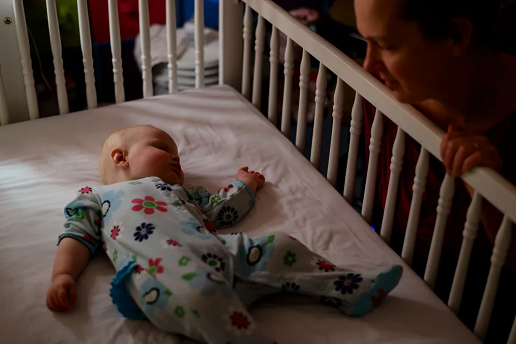As daylight saving time ends and we set clocks back an hour, many parents worry about how this change will impact their baby’s sleep schedule. Fortunately, with a few proactive steps, the transition can be smooth.
Start adjusting your baby’s schedule a few days in advance. Gradually shift bedtime later by 10 to 15 minutes each night. This slow adjustment helps their internal clock align with the new time. Consistency is key—maintain a calming bedtime routine, like a warm bath or a story, to signal that it’s time to sleep. Ensure the baby's sleep environment is comfortable and free from disturbances.
Ensure the baby's sleep environment is comfortable and free from disturbances.
Optimize your baby’s sleep environment with blackout curtains to block early light and a white noise machine to reduce disturbances. During the day, encourage active play and expose your baby to natural light to regulate their circadian rhythm. Avoid overstimulating activities near bedtime, as they may make it harder for your baby to wind down.
Pay attention to your baby’s sleep cues, like rubbing their eyes or fussing, and put them to bed at the first signs of tiredness. Be patient—it may take a week or so for your baby to fully adapt. If disruptions persist, consult a pediatrician or sleep expert for tailored advice.
With preparation and patience, you can help your baby adjust to the time change while maintaining healthy sleep habits for the whole family.






